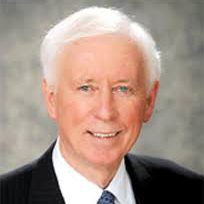Health Sector Assembly America
The time is 6:00 am and the sun has yet to peek over the mountains. The location is Utah, USA at the Sundance Resort founded by American actor Robert Redford.
Later today I will fly back home to Florida but now I am reflecting, even basking, in the outcome of the remarkable meeting I attended here this weekend – The fourteenth annual Health Sector Assembly (HSA) of America.
At this meeting fifty key leaders from organizations and institutions interested in health care came together from across the US to address the issue of health care financing.
The purpose was to make the case that managing the cost of health care should be a central and immediate focus of public policy and make suggestions about fundamental approaches to this effort.
The HSA, the brainchild of international public affairs consultant Roy Pfautch, was founded by the American Medical Association in 1999.
The purpose of this annual event has been to bring together leaders from disparate sectors of society interested in health care to share ideas and perceptions.
It is a discussion of health care at the highest levels – a coming together of expertise, experience, roles and philosophies concerning health issues of broad societal significance.
Critical to its success is that it brings together leaders from organizations that not uncommonly have fundamental disagreements about policy.
In a nonjudgmental atmosphere those leaders, frequently to their surprise, find areas and subjects on which they agree and can work together.
Mr. Pfautch founded another HSA in Japan which is in its sixth year and which is widely accepted by leaders in health care in that country.
What the participants in this weekend’s session found was a significant degree of broad agreement on approaches to dealing with the costs of health care.
Important to note is that the choices were not preordained; the options not listed.
The format provided for five small groups of attendees to answer the question of what kinds of savings can and should be achieved.
In addition they were asked, to identify five prioritized combinations of solutions that would have the greatest impact and best chance of becoming law or policy.
A final, more comprehensive report is being developed. The following is the prioritized list identified at a high level:
- Address high-need patients in a comprehensive cohesive manner
- Improve coordination and integration of the health care system through payment and practice reform
- Promote interdisciplinary team-based care
- Invest in research and innovation to reduce the burden of disease
- Promote personal engagement and empowerment in health care decision making through information and education
So why am I basking in the outcome of this meeting?
To state the obvious, this country was the center of partisan, sometimes vitriolic debate as it developed and passed health system reform legislation.
That debate is still in full force two and a half years after the law, the Affordable Care Act, was passed.
In addition, my country is in the middle of a presidential campaign in which similar discord and partisanship has been present as the nation looks at two different visions for its future presented by the candidates for the presidency.
And, health care has been a significant part of that campaign debate.
If that were not enough, this HSA meeting occurred just two weeks prior to the election.
All of this makes it even more encouraging that a group of national leaders in health care could come together in this atmosphere and have rational, thoughtful discussions about the future – and come to consensus.
And, those discussions were not intruded upon by the discord in the political arena.
My conclusion:
Out there in the country, outside the partisan cacophony of the political debate, there is significant agreement about the course to travel in dealing with the challenges of our health care system.
And what is needed is to bring the political world together, into the room, to reflect that agreement.
Big job. Difficult job. Essential job.

